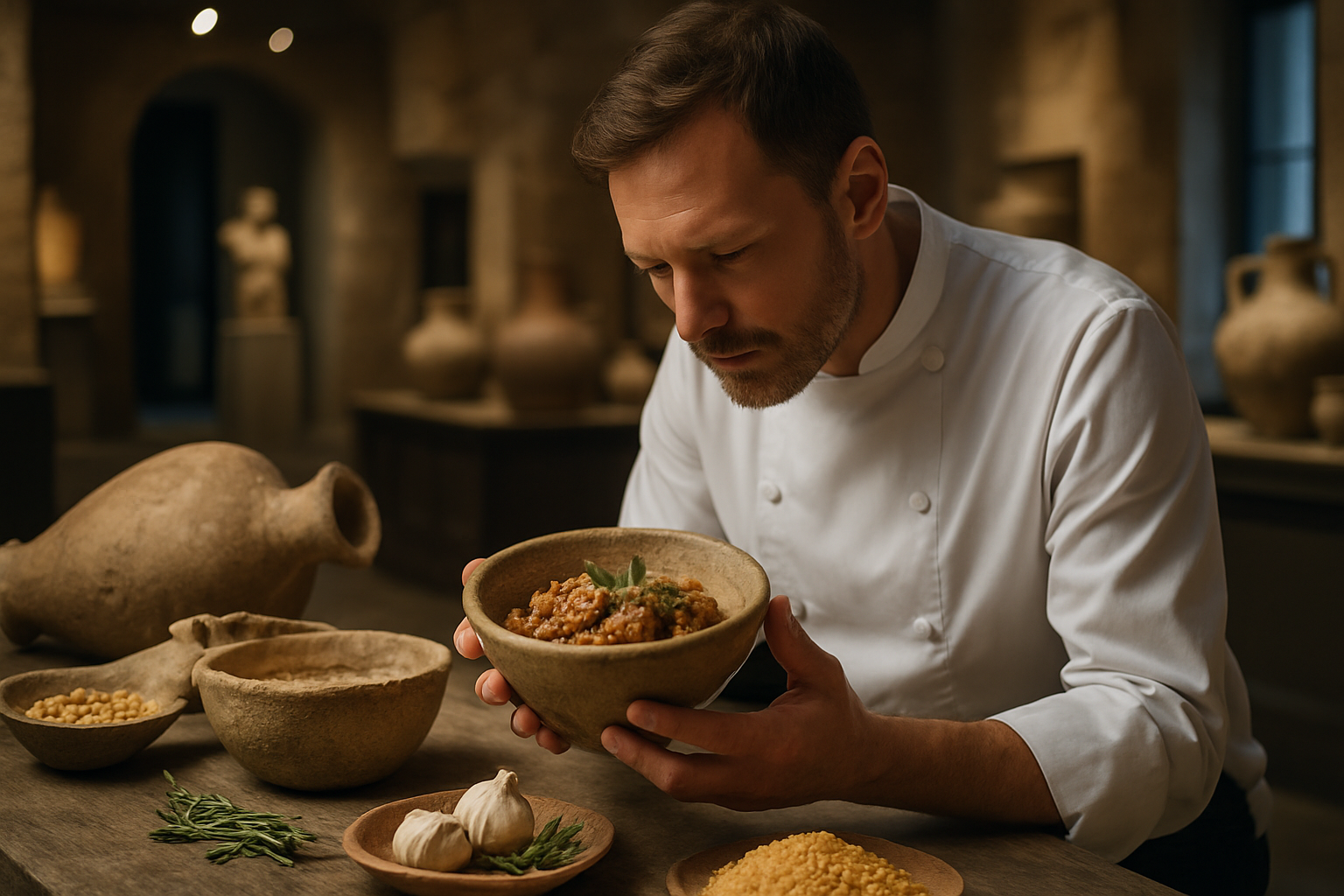Culinary Time Travel: Exploring Ancient Flavors in Modern Destinations
Embark on a gastronomic journey through time, where ancient recipes come alive in contemporary kitchens. This emerging travel trend combines history, culture, and cuisine, offering adventurers a unique way to experience destinations through their ancestral flavors. Discover how innovative chefs and cultural preservationists are reviving millennia-old cooking techniques and ingredients, creating a bridge between past and present on your plate.

Ancient Ingredients Making a Comeback
One of the most exciting aspects of culinary time travel is the reintroduction of ancient ingredients to modern palates. Forgotten grains like einkorn, emmer, and spelt are finding their way back into artisanal bread and pasta. Wild herbs and foraged plants that sustained our ancestors are now prized for their unique flavors and nutritional benefits. Even extinct species are being revived through careful breeding programs, offering tastes that haven’t been experienced for generations.
Recreating Historical Cooking Techniques
Beyond ingredients, culinary time travelers are also embracing ancient cooking methods. Clay pot cooking, pit roasting, and fermentation techniques that date back thousands of years are being revived in restaurants and cooking schools worldwide. These methods not only produce distinctive flavors but also offer a hands-on connection to our culinary heritage. Travelers can participate in workshops to learn these techniques, gaining a deeper appreciation for the ingenuity of ancient cooks.
Destination Spotlight: Tasting History Around the Globe
Several destinations have embraced culinary time travel as a way to showcase their cultural heritage. In Mexico, restaurants are serving pre-Columbian dishes featuring indigenous ingredients like chia seeds, amaranth, and huitlacoche. Italy’s Pompeii Archaeological Park offers visitors the chance to dine on recreated Roman feasts based on archaeological findings. In Peru, chefs are reviving Incan superfoods and cooking methods, offering a taste of the empire’s culinary prowess.
The Intersection of Science and Gastronomy
Culinary time travel isn’t just about recreating old recipes; it’s a scientific endeavor that combines cutting-edge technology with historical research. Food scientists and archaeologists work together to analyze residues found on ancient pottery, extracting information about ingredients and cooking methods. This data is then used to create accurate recreations of historical dishes, providing a literal taste of the past.
Ethical Considerations and Cultural Preservation
As with any form of cultural exploration, culinary time travel raises important ethical considerations. It’s crucial that these experiences respect and benefit the communities from which these culinary traditions originate. Many programs work closely with indigenous groups to ensure that the revival of ancient foods contributes to cultural preservation and economic development. Travelers are encouraged to seek out experiences that prioritize authenticity and cultural sensitivity.
The Future of Flavors Past
The trend of culinary time travel is set to grow, with more destinations and tour operators incorporating ancient gastronomy into their offerings. As interest in sustainable and locally-sourced food continues to rise, these historical culinary practices offer valuable insights into resilient food systems and forgotten nutritional wisdom. For travelers, it presents an unparalleled opportunity to experience history through all five senses, creating memories that truly stand the test of time.
Savor the Past: Tips for Culinary Time Travelers
-
Research the historical context of dishes before trying them to enhance your appreciation
-
Look for tours or experiences led by archaeologists or food historians for the most accurate insights
-
Try cooking with ancient grains or herbs at home to continue your culinary journey after your trip
-
Visit local markets to find ingredients that have been used in the region for centuries
-
Participate in hands-on workshops to learn ancient cooking techniques firsthand
-
Keep an open mind when tasting unfamiliar flavors; what seems strange now may have been a delicacy in the past
As we look to the future of travel, exploring the flavors of the past offers a unique and enriching experience. Culinary time travel not only satisfies our taste buds but also deepens our understanding of human history and cultural evolution. By embracing these ancient tastes and techniques, we connect with our ancestors in a profoundly personal way, creating a bridge across time through the universal language of food.




